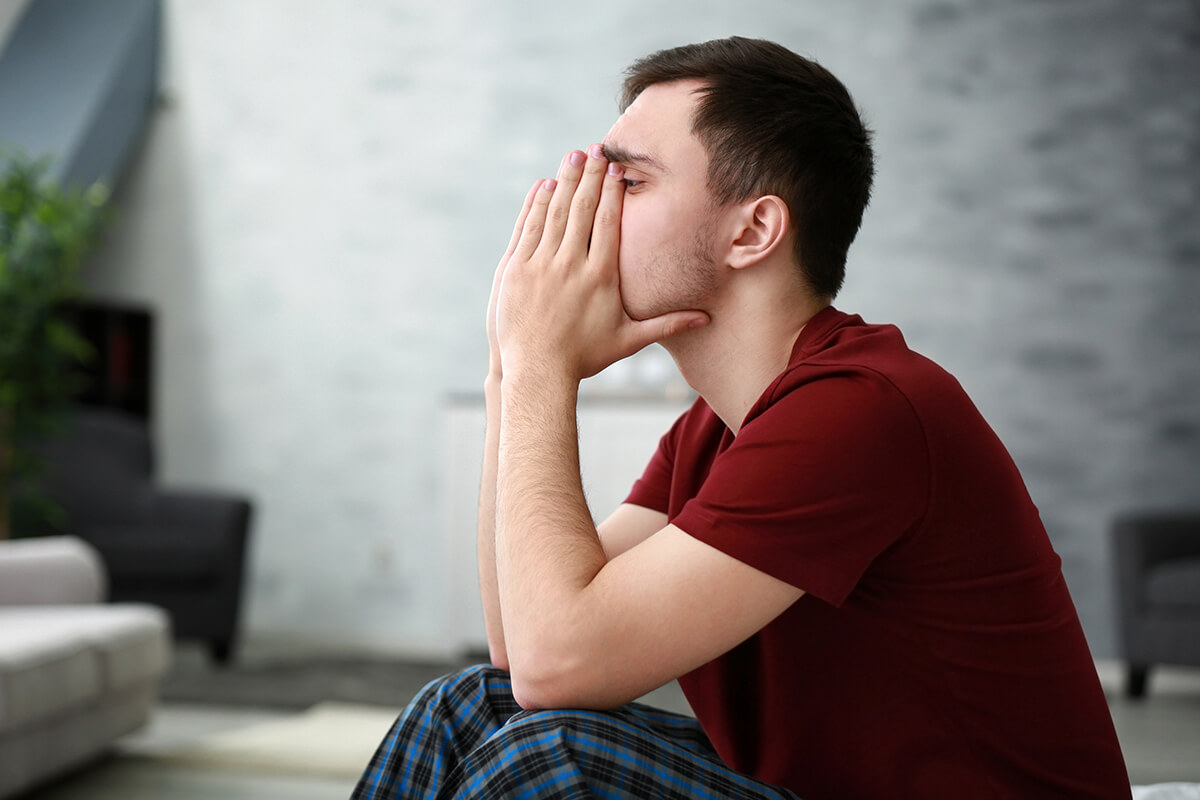A panic disorder can significantly disrupt your daily life. It may complicate social interactions, disturb your sleep patterns, and prevent you from engaging in activities you enjoy due to the fear of experiencing another panic attack. Such a situation is not one that anyone should endure; fortunately, assistance is accessible.
Our dedicated team, which includes experienced psychiatric nurse practitioners and physician assistants, provides a range of effective treatments designed to help you manage your panic disorder. Our objective is to guide you towards a more tranquil state of mind, allowing you to feel more content, comfortable, and composed, thereby enabling you to resume living your life to the fullest.
If you are facing recurrent panic attacks or have received a diagnosis of panic disorder, we invite you to connect with our welcoming team here.
Some individuals are quite fortunate and may never encounter a severe panic attack. While the majority of people experience only a few panic attacks throughout their lives, there are those who, regrettably, receive a diagnosis of panic disorder in Long Beach, CA.
A panic attack is characterized by a sudden and intense feeling of fear that leads to a range of severe physical responses, which will be explored in greater detail later. This phenomenon can arise from situations that evoke past traumas or significant anxieties, but it can also occur without any discernible trigger or immediate threat. Such panic attacks can be alarming, with many individuals reporting sensations akin to losing control of their bodies, experiencing a heart attack, or even fearing death.
As previously noted, many individuals will encounter this experience at some point in their lives. However, when a person suffers from recurrent, unexpected panic attacks and lives in a state of persistent anxiety regarding the possibility of another attack, this condition qualifies as a panic disorder diagnosis.
Panic attacks can occur unexpectedly. Fortunately, the symptoms typically reach their peak within a few minutes and tend to diminish shortly thereafter. Nevertheless, many individuals may still experience feelings of fatigue and discomfort after the panic attack has subsided. Therefore, it is crucial to identify a secure environment in which to endure the panic attack and to have trustworthy individuals present during moments when you anticipate a potential trigger.
The symptoms associated with a panic attack may encompass:
– Fear of losing control or facing death
– Rapid and intense heart rate
– A feeling of imminent danger or catastrophe
– Shaking or trembling
– Chills, hot flashes, and excessive sweating
– Nausea and abdominal cramps
– Chest pain and headaches
– Numbness or tingling sensations
– Shortness of breath and a constricted throat
Additionally, many individuals report experiencing a sense of detachment from reality during a panic attack, commonly referred to as dissociation. If you frequently encounter panic attacks that include any of the aforementioned symptoms, you may find it beneficial to seek treatment for panic disorder from our services.


It remains somewhat ambiguous why certain individuals are more susceptible to experiencing frequent panic attacks or developing a panic disorder, as well as the initial triggers for these episodes. However, we have identified several factors that contribute to their emergence, which enhances our understanding of how to manage and prevent them. These contributing factors encompass:
– Significant stress episodes
– Genetic predisposition
– Alterations in the functioning of specific brain regions
– A temperament that is more sensitive to stress or inclined towards negative emotions
– A family history of panic attacks or panic disorder
– Traumatic life experiences, such as an assault or serious accident
– High levels of tobacco consumption
– Excessive caffeine intake
– A background of childhood abuse
– General stress
Current research by some experts is focused on the role of the body’s natural fight-or-flight response to perceived threats, which may be crucial for comprehending panic attacks and panic disorders. Nevertheless, a variety of contemporary medications and therapeutic approaches are available to help mitigate the onset of panic attacks and alleviate the symptoms associated with panic disorders.
Panic attacks, while generally not life-threatening, can be quite difficult to handle independently. Given their unpredictable nature, it is crucial to identify effective strategies that can assist in mitigating the attack or at least navigating through it as safely as possible. Several techniques may prove beneficial, including:
Acknowledging the onset of a panic attack, reassuring yourself that it is not a more severe issue, and reminding yourself that the episode will eventually subside.
Relaxing your muscles to the greatest extent possible while concentrating on your breathing and engaging in simple deep breathing exercises to prevent hyperventilation.
Closing your eyes to minimize overwhelming negative visual stimuli.
Practicing mindfulness by concentrating on familiar physical sensations and recognizing the objects in your immediate environment.
Additionally, maintaining physical activity and a healthy lifestyle can be advantageous in reducing triggers for panic attacks, such as lack of sleep, excessive consumption of alcohol and tobacco, and the use of recreational drugs. Incorporating routines such as mindfulness meditation and yoga may also provide significant support.
Monday: 9:00 AM – 5:00 PM
Tuesday: 9:00 AM – 5:00 PM
Wednesday: 9:00 AM – 5:30 PM
Thursday: 9:00 AM – 5:00 PM
Friday: 9:00 AM – 5:00 PM
Saturday: Closed
Sunday: Closed
Telehealth Appointments
Mon – Thurs: 09:00 AM – 5:00 PM

© 2025 Copyright Sal Psychiatry Services